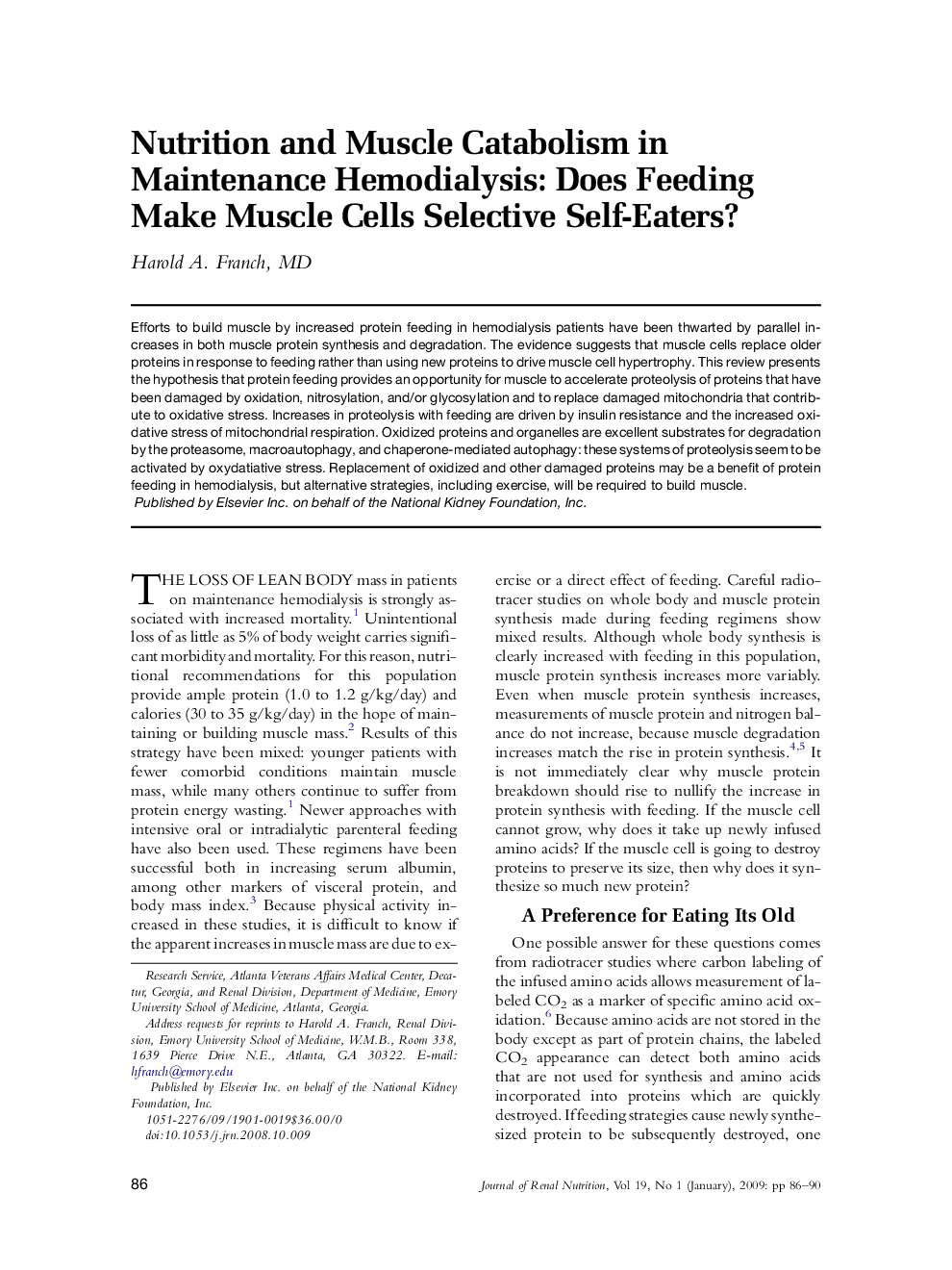| Article ID | Journal | Published Year | Pages | File Type |
|---|---|---|---|---|
| 3856801 | Journal of Renal Nutrition | 2009 | 5 Pages |
Abstract
Efforts to build muscle by increased protein feeding in hemodialysis patients have been thwarted by parallel increases in both muscle protein synthesis and degradation. The evidence suggests that muscle cells replace older proteins in response to feeding rather than using new proteins to drive muscle cell hypertrophy. This review presents the hypothesis that protein feeding provides an opportunity for muscle to accelerate proteolysis of proteins that have been damaged by oxidation, nitrosylation, and/or glycosylation and to replace damaged mitochondria that contribute to oxidative stress. Increases in proteolysis with feeding are driven by insulin resistance and the increased oxidative stress of mitochondrial respiration. Oxidized proteins and organelles are excellent substrates for degradation by the proteasome, macroautophagy, and chaperone-mediated autophagy: these systems of proteolysis seem to be activated by oxydatiative stress. Replacement of oxidized and other damaged proteins may be a benefit of protein feeding in hemodialysis, but alternative strategies, including exercise, will be required to build muscle.
Related Topics
Health Sciences
Medicine and Dentistry
Nephrology
Authors
Harold A. MD,
